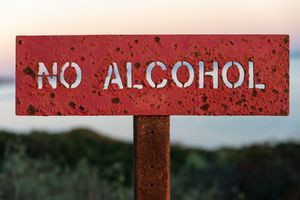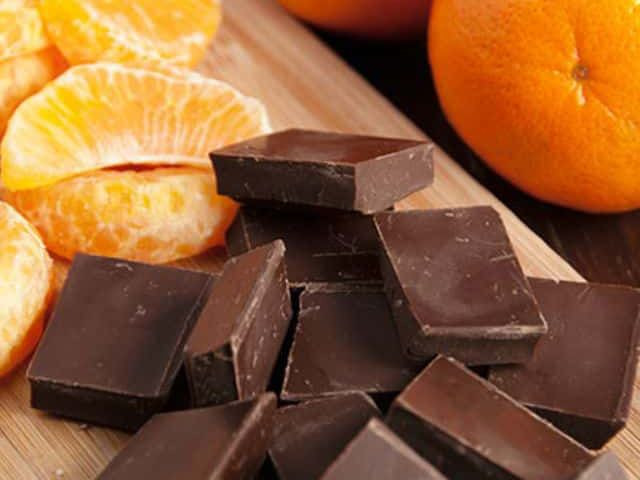Is It Okay To Drink Before A Tattoo? Absolutely not! Drinking alcohol before getting inked can lead to complications and affect the quality of your tattoo. At tattooat.com, we’re dedicated to providing you with the knowledge you need for a safe and enjoyable tattoo experience, which is why we’ve compiled this comprehensive guide. Stay informed about tattoo aftercare, tattoo healing process, and responsible tattooing practices.
1. Understanding the Risks: Why Mixing Alcohol and Tattoos is a Bad Idea
The combination of alcohol and getting a tattoo is detrimental to your health. Abstaining from alcohol for 24 hours before your new tattoo and 48 hours after will protect your body’s ability to self-heal.
Though you probably want to celebrate before or after getting your new tattoo to dull the pain or take the edge off the soreness of your skin, be patient and self-controlled. Understand that your tattoo is like a medical procedure, where you’ll need to rest up and heal for a few days. It used to be a run-of-the-mill joke that people would wake up with no memory of tattoos that they got when they were drunk. However, this is no laughing matter, because it’s well-established that drinking after getting a tattoo is risky behavior for the following reasons:
1.1. How Does Alcohol Affect the Tattoo Process?
Alcohol acts as a blood thinner, which can cause excessive bleeding during the tattooing process. This can make it difficult for the tattoo artist to accurately apply the ink, potentially resulting in a blurry or uneven tattoo.
1.2. Impact on Healing: Why Alcohol Hinders Recovery
Alcohol consumption can disrupt the body’s natural healing process, making you more susceptible to infections. A tattoo is essentially an open wound, and your body needs to clot, scab and heal the open wound, which drinking alcohol inhibits the healing process.
1.3. Loss of Control: The Behavioral Risks of Drinking Before a Tattoo
Alcohol impairs judgment and can lead to poor decision-making. You might choose a design you later regret, or become uncooperative during the session, potentially compromising the quality of your tattoo. According to the Alcohol Rehab Guide, drinking lowers your inhibition, impairs judgment, and increases the risk of aggressive behaviors, endangering your health and your tattoo artist.
 No Alcohol Sign
No Alcohol Sign
2. The Science Behind the Risks: How Alcohol Impacts Your Body
Alcohol consumption leads to several physiological changes that can negatively impact the tattooing process.
2.1. Blood Thinning Explained: Why This Matters for Tattoos
Alcohol thins the blood, which disturbs the body’s natural clotting function. Our blood forms clots to protect us after wounds or injuries. Even though a tattoo is an artistic procedure, it is technically an injury at the same time–as far as the body is concerned.
2.2. Immune System Suppression: Understanding the Vulnerability to Infections
Alcohol reduces the antibodies available in your body inhibiting the natural healing process following your tattoo. Alcohol depresses your immune system, you are more vulnerable to infections that your body would otherwise naturally fight.
2.3. Dehydration: How Lack of Hydration Affects Skin and Ink
Alcohol dehydrates the body, which can affect the skin’s ability to retain ink. According to research from Portland State University’s Art Department, in July 2025, hydrated skin accepts ink more readily and promotes faster healing.
3. Timeline for Abstinence: How Long to Avoid Alcohol Before and After Your Tattoo
To ensure a smooth tattooing process and optimal healing, it’s crucial to abstain from alcohol for a specific period.
3.1. 24 Hours Before: Why This Pre-Tattoo Abstinence is Essential
Avoid alcohol for at least 24 hours before your tattoo appointment to minimize bleeding and ensure clear communication with your artist. This timeframe allows your blood to return to its normal consistency, reducing the risk of complications.
3.2. 48 Hours After: The Minimum Post-Tattoo Waiting Period
Wait at least 48 hours after getting your new tattoo before drinking alcohol. This allows your body to begin the healing process without interference from alcohol’s blood-thinning and immune-suppressing effects.
3.3. Extended Abstinence: When to Consider a Longer Waiting Period
For larger or more complex tattoos, consider extending the post-tattoo abstinence period to 72 hours or longer. This provides extra time for your body to heal and reduces the risk of complications.
4. The Tattoo Artist’s Perspective: Why Reputable Studios Refuse to Tattoo Intoxicated Clients
Reputable tattoo artists prioritize the safety and quality of their work.
4.1. Legal Considerations: Consent and Liability
Good tattoo artists and tattoo shop owners refuse to give you a tattoo if they suspect you are under the influence of alcohol because, legally, you cannot sign a liability form while you are intoxicated. Legally speaking, a signed contract can become invalid if it is discovered that the signature was made by an intoxicated party.
4.2. Maintaining Quality: The Impact of Alcohol on Tattoo Artistry
Reputable tattoo studios ask you to sign a consent form before they start work on your tattoo. Consent forms include medical questions to determine whether a tattoo is safe for you, and the form also sets out the terms and conditions of the tattooing process. When you sign the form, you sign away your right for damages. You’re also required to certify that you are not under the influence of alcohol or drugs.
4.3. Ensuring a Safe Environment: Protecting Clients and Staff
Tattoo shop owners also have a responsibility to protect their stores and their clients from potential danger and complications caused by drunken behavior.
 Tattooed Hand Pouring a Beer in a Wooden Cup
Tattooed Hand Pouring a Beer in a Wooden Cup
5. Alternatives to Alcohol: Preparing Your Body and Mind for a Tattoo
Instead of turning to alcohol, explore healthier ways to prepare for your tattoo session.
5.1. Hydration Strategies: What to Drink Before and After Getting Inked
Drinking water is excellent, not only for hydration which nourishes the skin, but to some extent, it can counter problems you might have with excessive bleeding. Start thinking about your water intake early on. See if you can increase your water intake for a few days before getting your tattoo.
5.2. Nutritional Support: Foods That Promote Healing and Reduce Inflammation
The science behind what to eat and drink before and after getting a tattoo is a growing field. Start by drinking lots of water, eating fresh produce, and avoiding foods and drinks that cause inflammation. Here are a selection of the best food and drinks to consume when you’re going through the tattooing process:
| Food | Benefits |
|---|---|
| Oranges | Contain Vitamin C, which is vital for collagen production and good for the connective tissue in your skin. Strengthens the immune system. |
| Dark Chocolate | Provides goodness from the inside out, speeds up skin cell renewal, and has protective qualities against ultraviolet radiation from the sun. |
| Broccoli | Contains a huge concentration of antioxidants, such as Vitamins C and K. Vitamin K also protects against blood thinning. |
| Blueberries | Packed with antioxidants, benefits your immune system and healing in general. Credit with healing many skin complaints ranging from oily skin to wrinkles. |
| Pineapple | High Vitamin C content. Due to their high Vitamin C content, pineapple makes your skin look young and hydrated. |
| Garlic | Strongly associated with natural healing and with ridding the body of impurities. |
| Tomatoes | Great source of Vitamin C and Vitamin A, which preserves the skin from future damage. The lycopene content in tomatoes is another factor in the fight against the aging of the skin. |
| Healthy Carbs | Stabilize blood sugar levels and fill you up. Pasta, rice, and potatoes are all good carbs that will help you. |
| Dark leafy greens | Crucial role in blood clotting. Spinach is the most readily available and cheap source- not to mention tasty! |
5.3. Relaxation Techniques: Managing Pain and Anxiety Without Alcohol
Consider relaxation techniques like deep breathing, meditation, or listening to calming music to manage pain and anxiety during your tattoo session. These methods can help you stay relaxed and focused without the negative effects of alcohol.
 Woman Feeling Sick Sitting at Bar with Tattoo on her forearm
Woman Feeling Sick Sitting at Bar with Tattoo on her forearm
6. Recognizing the Signs: How to Tell if Someone is Too Intoxicated for a Tattoo
Being able to recognize the signs of intoxication is crucial for both tattoo artists and clients.
6.1. Physical Indicators: Identifying Visible Signs of Intoxication
Physical indicators of intoxication include slurred speech, unsteady gait, bloodshot eyes, and impaired coordination. If someone exhibits these signs, they are likely too intoxicated for a tattoo.
6.2. Behavioral Changes: Recognizing Erratic or Unpredictable Behavior
Behavioral changes such as excessive talking, mood swings, aggression, or impaired judgment can also indicate intoxication. It’s important to be aware of these signs and take appropriate action.
6.3. The Importance of Communication: Asking Direct Questions
When in doubt, ask direct questions to assess someone’s level of sobriety. A reputable tattoo artist will prioritize safety and refuse to proceed if they suspect the client is under the influence of alcohol or drugs.
7. Addressing Myths and Misconceptions: Separating Fact from Fiction
There are several myths surrounding alcohol and tattoos that need to be addressed.
7.1. “Alcohol Helps With the Pain”: Debunking This Common Myth
Contrary to popular belief, alcohol does not help with the pain of getting a tattoo. In fact, it can increase sensitivity and make the experience more uncomfortable due to its effects on the nervous system.
7.2. “A Little Bit of Alcohol is Okay”: Why Even Small Amounts Can Be Problematic
Even small amounts of alcohol can thin the blood and impair judgment, increasing the risk of complications during and after the tattooing process. It’s best to abstain completely to ensure a safe and successful tattoo experience.
7.3. “I’ve Had Tattoos Before While Drinking, and It Was Fine”: Understanding the Risks of Past Experiences
Just because you’ve had tattoos while drinking in the past without experiencing complications doesn’t mean it’s safe to do so again. Every tattoo and every individual is different, and the risks associated with alcohol consumption remain the same.
8. What If Something Goes Wrong? Recognizing Complications and Seeking Help
Despite taking precautions, complications can still arise.
8.1. Excessive Bleeding: When to Seek Medical Attention
If your new tattoo is still seeping blood after 48 hours, this is an indication that you need to seek medical attention immediately. Bottom line: refrain from drinking alcohol after getting a tattoo so your body can clot, scab and heal the open wound.
8.2. Signs of Infection: Recognizing the Symptoms and Seeking Treatment
Signs of infection include redness, swelling, pain, pus, and fever. If you experience any of these symptoms, seek medical attention promptly to prevent further complications.
8.3. Allergic Reactions: Identifying and Addressing Potential Allergies
Allergic reactions to tattoo ink are rare but can occur. Symptoms may include itching, rash, hives, or difficulty breathing. If you suspect an allergic reaction, seek immediate medical attention.
 People Talking At a Restaurant Drinking Wine
People Talking At a Restaurant Drinking Wine
9. Real-Life Scenarios: Learning from Others’ Experiences
Hearing real-life stories can help illustrate the importance of avoiding alcohol before and after getting a tattoo.
9.1. Case Study 1: The Impact of Alcohol on Tattoo Quality
Sarah, a 25-year-old from Portland, decided to get a tattoo after a night out with friends. Despite feeling slightly tipsy, she went ahead with the appointment. The excessive bleeding during the session made it difficult for the artist to apply the ink evenly, resulting in a blurry and uneven tattoo that she later regretted.
9.2. Case Study 2: The Risks of Infection Due to Alcohol Consumption
Mark, a 30-year-old from Austin, celebrated his new tattoo with a few beers. The alcohol suppressed his immune system, making him more susceptible to infection. A few days later, his tattoo became red, swollen, and painful, requiring antibiotic treatment.
9.3. Case Study 3: The Importance of Following Aftercare Instructions
Emily, a 22-year-old from Seattle, followed all the aftercare instructions provided by her tattoo artist, including abstaining from alcohol. As a result, her tattoo healed quickly and without complications, leaving her with a beautiful piece of art that she was proud to show off.
10. Conclusion: Making Informed Decisions for a Safe and Successful Tattoo Experience
Making informed decisions is essential for a safe and successful tattoo experience.
10.1. Recap of Key Points: The Dangers of Mixing Alcohol and Tattoos
To sum up: we all want to celebrate a new tattoo, but do not drink for 24 hours before getting a tattoo or 48 hours after getting a tattoo. There are just too many things that can go wrong, and the consequences can be unpleasant or permanent if the best practice guidelines are not followed.
10.2. Encouraging Responsible Tattooing Practices
By understanding the risks associated with alcohol consumption and following responsible tattooing practices, you can ensure a positive and enjoyable experience. Remember to choose a reputable tattoo artist, follow all aftercare instructions, and prioritize your health and safety.
10.3. Final Thoughts: Enjoying Your New Tattoo (Soberly)
After all, you have the rest of your life to enjoy your new tattoo (and a beverage or two)! Fortify yourself with the above healthy foods and water. These will make you feel better, and will play a major role in healing!
 Oranges and Dark Chocolates
Oranges and Dark Chocolates
Ready to explore the world of tattoos responsibly? Visit tattooat.com for inspiration, artist recommendations, and expert advice. Discover stunning tattoo designs, connect with talented artists, and learn everything you need to know about tattoo aftercare. Start your journey to a beautiful and safe tattoo experience today! Visit us at 1825 SW Broadway, Portland, OR 97201, United States. Or call us at +1 (503) 725-3000. Website: tattooat.com.
Frequently Asked Questions (FAQs)
1. Can I drink alcohol the night before my tattoo appointment?
No, it’s best to avoid alcohol for at least 24 hours before your tattoo appointment to minimize bleeding and ensure clear communication with your artist.
2. What happens if I drink alcohol after getting a tattoo?
Drinking alcohol after getting a tattoo can disrupt the healing process, increase the risk of infection, and affect the quality of your tattoo.
3. How long should I wait to drink alcohol after getting a tattoo?
Wait at least 48 hours after getting your new tattoo before drinking alcohol.
4. Can I take painkillers containing alcohol before getting a tattoo?
No, avoid taking any medications containing alcohol before your tattoo appointment.
5. Is it okay to have one beer before getting a tattoo?
No, even small amounts of alcohol can thin the blood and impair judgment, increasing the risk of complications.
6. What should I do if I accidentally drank alcohol before my tattoo appointment?
Inform your tattoo artist immediately. They may choose to reschedule your appointment to ensure your safety and the quality of their work.
7. Can I use numbing cream instead of drinking alcohol to manage pain?
Yes, numbing cream can be a safe and effective alternative to alcohol for managing pain during your tattoo session.
8. What are the best drinks to consume before and after getting a tattoo?
Water, herbal tea, and fruit juice are excellent choices for hydration and nutritional support.
9. How can I prepare my body for a tattoo without alcohol?
Focus on hydration, nutrition, and relaxation techniques to prepare your body for a tattoo without alcohol.
10. Where can I find more information about responsible tattooing practices?
Visit tattooat.com for inspiration, artist recommendations, and expert advice on responsible tattooing practices.
